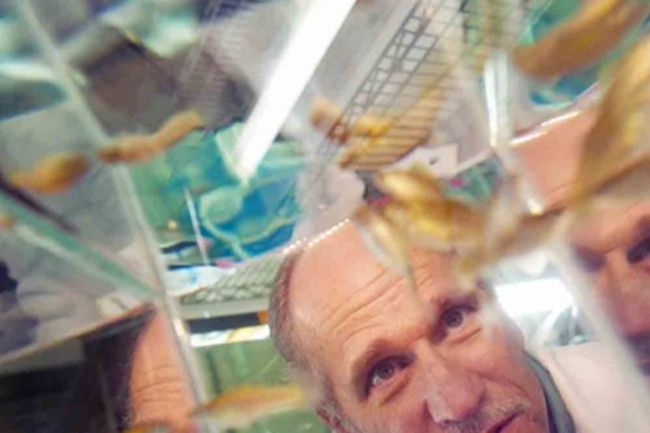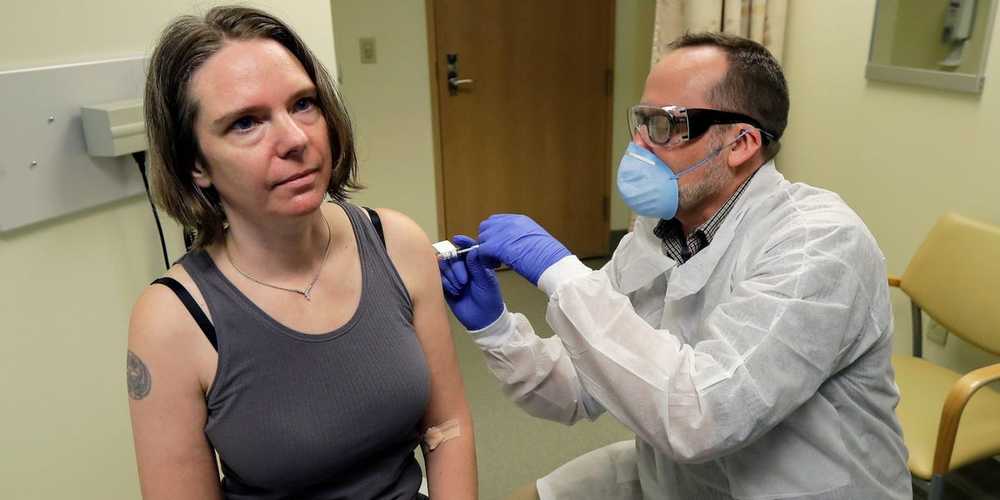face_with_colon_three circa 2015 this guppy could lead to rapid biological singularity.
Some species are evolving far more quickly than Darwin ever imagined.


As computers get more powerful and connected, the amount of data that we send and receive is in a constant race with the technologies that we use to transmit it. Electrons are now proving insufficiently fast and are being replaced by photons as the demand for fiber optic internet cabling and data centers grow.
Though light is much faster than electricity, in modern optical systems, more information is transmitted by layering data into multiple aspects of a light wave, such as its amplitude, wavelength and polarization. Increasingly sophisticated “multiplexing” techniques like these are the only way to stay ahead of the increasing demand for data, but those too are approaching a bottleneck. We are simply running out of room to store more data in the conventional properties of light.
To break through this barrier, engineers are exploring some of light’s harder-to-control properties. Now, two studies from the University of Pennsylvania’s School of Engineering and Applied Science have shown a system that can manipulate and detect one such property known as the orbital angular momentum, or OAM, of light. Critically, they are the first to do so on small semiconductor chips and with enough precision that it can be used as a medium for transmitting information.

Nearly 14 months ago, Vice President Mike Pence spoke at a meeting of the National Space Council in Huntsville, Alabama, and changed the trajectory of NASA’s human spaceflight program. Pence directed NASA to accelerate its schedule for returning humans to the Moon, which at the time called for a landing by 2028. The new goal: land American astronauts on the Moon “within the next five years,” a goal subsequently interpreted to mean by the end of 2024 (see “Lunar whiplash”, The Space Review, April 1, 2019.)
Much of what NASA needed to accomplish the revised goal was already in development, notably the Orion spacecraft and Space Launch System. Both had suffered significant delays but (presumably) would be ready in time to launch NASA astronauts to orbit the Moon, perhaps using the lunar Gateway also under development. What was missing, though, was that last, but most essential, element: a lander to take astronauts down to the surface and then return them to lunar orbit.
No longer. On April 30, NASA announced it had awarded contracts to three companies for its Human Landing System (HLS) program. The awards to Blue Origin, Dynetics, and SpaceX, with a cumulative value of $967 million, will fund initial studies for human lunar lander concepts over the next ten months. NASA will then select one or more companies for full-scale lander development, with the goal of having a lander ready for the Artemis 3 mission before the end of 2024.

Current methods for charging electronic devices via wireless technology only work if the overall system parameters are set up to match a specific transfer distance. As a result, these methods are limited to stationary power transfer applications, which means that a device that is receiving power needs to maintain a specific distance from the source supplying it in order for the power transfer to be successful.
Researchers at Stanford University have recently developed a new technique that could enable more efficient wireless power transfer regardless of the distance between a device and its power source. Their paper, published in Nature Electronics, could help to overcome some of the current limitations of existing tools for the wireless charging of elecronic devices.
“The main purpose of our study was to overcome the barrier to dynamic wireless charging,” Sid Assawaworrarit, one of the researchers who carried out the study, told Phys.org. “Our idea is based on parity-time symmetry (PT symmetry), which concerns systems with balanced gain and loss.”
You might like this interview I did with futurist writer Nikola Danaylov, who runs the Singularity Weblog and wrote ‘Conversations with the Future: 21 Visions for the 21st century’, on how advances in AI could utterly transform human society and the health of the global transhumanist movement.
I’m trying to grow my futurism YouTube channel (transhumanism, AI, space colonisation etr) so if this is of interest to you I’d be very grateful for any subscribers.
https://www.youtube.com/channel/UCnVLqMgLDwO-aSk5YcYo1dA…
I interview Nikola Danaylov (@singularityblog), founder of the Singularity Weblog and author of Conversations with the Future: 21 Visions for the 21st Century. We discuss advances in AI, the singularity, whether western political leaders appreciate how fast technology is evolving and the global transhumanist movement.
You can buy Danaylov’s book here: https://www.amazon.com/gp/product/B01N4QF7GU/ref=as_li_qf_sp…5f50cf0e90


Novel quantum dot solar cells developed at Los Alamos National Laboratory match the efficiency of existing quantum-dot based devices, but without lead or other toxic elements that most solar cells of this type rely on.
“This quantum-dot approach shows great promise for a new type of toxic-element-free, inexpensive solar cells that exhibit remarkable defect tolerance,” said Victor Klimov, a physicist specializing in semiconductor nanocrystals at Los Alamos and lead author of the report featured on the cover of the journal Nature Energy.
Not only did the researchers demonstrate highly efficient devices, they also revealed the mechanism underlying their remarkable defect tolerance. Instead of impeding photovoltaic performance, the defect states in copper indium selenide quantum dots actually assist the photoconversion process.

Here’s a step-by-step explainer of what will happen during the Demo-2 mission, from prelaunch preparations through the astronauts’ return to Earth.
In photos: SpaceX’s Demo-2 Crew Dragon test flight with astronauts
While NASA astronauts heading to their rockets on the day of a launch have traditionally traveled to their launchpads in a retro-style “Astrovan,” Demo-2 astronauts Doug Hurley (left) and Bob Behnken will be rolling up to their Falcon 9 rocket in shiny Tesla Model X sports cars. This comes as no surprise to SpaceX fans; Elon Musk, the founder of both SpaceX and Tesla, famously launched a cherry-red Tesla Roadster into space on a Falcon Heavy rocket in 2018.

Paris (AFP) — An antibody from a patient who recovered from SARS has been shown to block COVID-19 infection in a laboratory setting, researchers said Monday in another potential breakthrough in the search for coronavirus treatment.
Scientists based in Switzerland and the United States previously isolated the antibodies from the patient in 2003, following the SARS outbreak that killed 774 people.
They experimented with 25 different types of antibodies — which target specific protein spikes on viruses — to see if they could prevent cells becoming infected with COVID-19.

In a milestone moment in the race for a coronavirus vaccine, the first results in humans showed Moderna’s vaccine candidate led to antibody responses in a handful of healthy volunteers.
The Massachusetts biotech on Monday described the immune-system responses to the vaccine from this first, small study that was primarily focused on safety. The results don’t yet show whether the vaccine would prevent people from being infected with the novel coronavirus.
Finding an effective coronavirus vaccine has become a global priority in ending the pandemic. US government leaders have put forward the ambitious timeline to have one by the end of 2020. It typically takes several years to develop a vaccine.